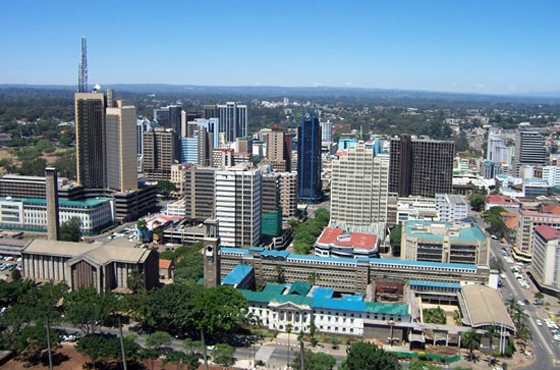Gulf businesses continue to eye Africa as a key frontier investment destination and are exploring opportunities outside natural resources, such as the industrial and services industries, as African economies continue to grow.
While there have been some doubts whether African countries can maintain the pace of growth, Ernst & Young believes that 14 years of growth has not been a "flash in the pan" and that the trend will continue. EY expects Africa's combined GDP to hit USD 3 trillion by 2018, compared to just over USD 2 trillion currently.
Many Gulf businesses are well aware of Africa's promise.
Dubai's Emirates airline has emerged as the de facto 'national' airline of Sub-Saharan Africa, offering 198 flights a week to 22 destinations, while Abu Dhabi's Etihad Airways serves 11 destinations.
Logistics firm Aramex has been focused on expanding in Africa and said in January it would look to acquire firms in South Africa and east Africa.
Abraaj Capital, a major private equity investor in emerging markets, has been on the hunt in Africa in recent years, picking up stakes this year in Morocco's chocolate manufacturer Kool Food, and in Liberty Star Consumer Holdings, one of the largest unlisted food and personal care manufacturers in South Africa.
The company has also participated in Swiss private banking group Edmond de Rothschild's USD 530 million Africa-focused fund.
Investment Corporation of Dubai, the emirate's sovereign wealth fund, also invested USD 300 million in Nigeria's Dangote Cement, while Abu Dhabi's Mubadala has been a significant investor in the continent's resources sector.
BEYOND RESOURCES
While the first wave of investments in Africa were focused on coal, crude oil, natural gas and metal and mining, the new wave of foreign direct investment has focused on consumer sectors.
"There is a fairly common view that Africa's growth over the past decade has been driven by natural resources," E&Y said. "However, while they are and will continue to be an important contributor to growth, resources have contributed less than a third of Africa's growth since 2000. The rest has come from a range of other sectors, including agriculture, manufacturing, construction and, in particular, services."
Technology, media and telecommunications sector made up one fifth of all FDI in 2013, while retail and consumer products (17%), financial services (15%) and business services (12%) were other key areas of focus. Oil and natural gas made up just (3%) of all foreign investments last year, while metals and mining (2%) appeared to have lost their attraction to investors.
The growth in non-extractive sectors is driven by rising populations and a higher proportion of Africans entering the middle class. Poverty rates are expected to fall from 60% in 1995 to 38% by 2015, at a time when population growth rates are the highest in the world.
CHALLENGES REMAIN
But the continent faces many challenges such as creating inclusive growth, burying deep-rooted suspicions of neighboring countries and the lack of intra-regional trade.
"While we cannot ignore the very real and significant challenges to stability and security that will remain across this vast and diverse continent for the foreseeable future, the overall trend lines remain positive and point towards sustained growth and increased prosperity and transformation in 2030," said Ross McLean, president, Sub Saharan Africa for US-based Dow Chemicals.
The region requires massive infrastructure investment, and focus in virtually all sectors to raise Africa's standards to other emerging markets.
The African Development Bank said that inadequate power and energy supplies, poor road and railway networks and port facilities have raised the cost of doing business.
"For us, navigating through the dynamics in Africa is an exciting opportunity in a world beset with challenging dynamics. In our business, we are seeing a dynamic cycle of development, investment, M&A and capital raising [are] only beginning to take off," Colin Coleman of Goldman Sachs wrote in EY's report on Africa.
Zawya
5 November
























































